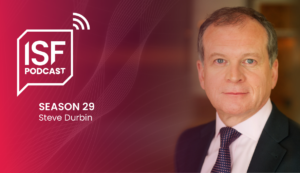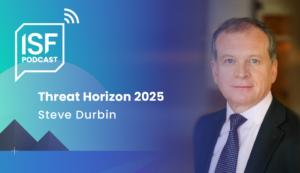Navigating Divisions In The Workplace: The impact of social media and rise of individual ideologies
Few would argue that we live in very divisive times. Growing divisions in political, societal and religious beliefs are brewing anxiety in our personal and work lives. Dissension is common in workplaces of all kinds with scant evidence that things are improving.
The Society for Human Resource Management’s (SHRM) 2024 Civility Index Research offers food for thought for employers. Findings from SHRM claim U.S. organizations lose about $2 billion per day in reduced productivity and absenteeism driven by incidences of incivility.
While societal divisions have long evolved from traditional boundaries like West versus East, today’s divisions are more closely related to personal biases and beliefs that are being increasingly fueled by the influence of social media.
Employees are susceptible to news from a wide range of sources—some credible, many not. Division, misinformation and an information vacuum offer opportunities for business leaders to step in and fill the void.
Impact Of Social Media
Facebook and TikTok have an outsized influence in shaping opinions and disseminating news. Between 2020 and 2024, the percentage of people sourcing their news from TikTok has grown from 3% to 17%, according to a survey from Pew Research. On Facebook, the number is even higher—30% of users surveyed say they turn to Facebook for news. Younger people in particular turn to social channels for information, with TikTok emerging as the new search engine for Gen-Z.
Do they believe everything they read on TikTok? Not always, but there’s a tendency to share items when they are outlandish and sensational. Misinformation spreads quickly, producing a fragmented world—a noticeable shift away from collective nationalism and toward favoring a range of competing individual ideologies, which can leave people feeling disconnected, even conflicted, and unsure of where to turn for trusted information and direction.
Balancing Nationalism And Individual Ideologies
Nationalism is a term that generally applies to geography and the nation where we live. But it’s also a concept that could be applied to workplaces or any institution with a sense of shared purpose and belonging. We tend to develop an affinity to our individual nation, certainly, but also to our workplace, our community, our place of worship, the schools we graduated from, the associations we belong to—any organization important to us.
A sense of identity bestows confidence. But what happens when nationalism bumps up against individual ideologies? That’s an important and growing issue for businesses, especially global businesses. Globalization is good because it ushers in a diversity of perspectives, ideal for problem-solving. Yet a global workforce also needs to be commonly united behind a set of shared corporate goals despite divergent nationalities. A balance must be struck.
Businesses and their leaders have an opportunity to create a unifying culture that leans on the positive aspects of nationalism while ensuring support and respect for individual ideologies—and the potential for learning from those. People enjoy consensus, a common purpose, the opportunity to unite around something they believe in.
But employees are influenced by more than a corporate culture. They’re also influenced by a barrage of messages they receive daily from multiple sources. Messages (often conflicting) that they must sift through and ascertain relevancy, accuracy and worth of sharing.
Trust But Verify: Steps Toward A Shared Purpose
As traditional trusted sources of information have disappointed or disenchanted audiences, organizations have an opportunity to fill the vacuum by:
- Creating a culture of transparency and openness.
- Offering a sense of common purpose while inviting individual input.
- Uniting employees around shared values.
- Providing consistency in a destabilized world.
Doing this requires a balance that includes retaining some traditional and historical artifacts while being open to new influences and ideas that can help organizations move forward. It requires recognizing and being respectful of different perspectives while encouraging collaboration around shared principles and cultural ideals.
With information coming from a raft of disjointed and disconnected sources with lopsided levels of credibility, organizations and their employees need to foster a culture that rewards healthy skepticism and critical thinking skills for combating misinformation—and deleting or containing it. This requires an investment in training to enhance digital literacy, to nurture an environment where diverse perspectives are valued and integrated into decision-making processes. To meet these high standards, organizations must:
- Provide transparent and consistent messaging about goals and values.
- Position leaders as a trusted source of truth.
- Support information verification in communications and decision-making processes.
- Foster a culture of healthy skepticism, open dialogue and exploration.
- Encourage employees to challenge legacy practices in a constructive way.


